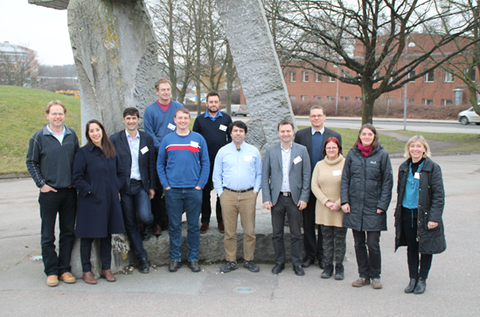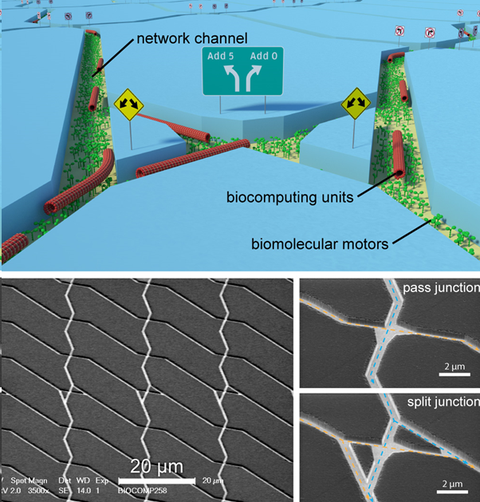Mar 20, 2017
Molecular motor-powered biocomputers

All researchers at the kick-off meeting
Crashing computers or smartphones and software security holes that allow hackers to steal millions of passwords could be prevented if it were possible to design and verify error-free software. Unfortunately, to date, this is a problem that neither engineers nor supercomputers can solve. One reason is that the computing power required to verify the correct function of a many types of software scales exponentially with the size of the program, so that processing speed, energy consumption and cooling of conventional microelectronic processors prevent current computers from verifying large programs.
The recently launched research project aims to develop a biocomputer that can overcome the two main obstacles faced by today’s supercomputers: first, they use vast amounts of electric power – so much that the development of more powerful computers is hampered primarily by limitations in the ability to cool the processors. Second, they cannot do two things at the same time. The EU now funds a project that will develop a computer based on highly efficient molecular motors that will use a fraction of the energy of existing computers, and that can tackle problems where many solutions need to be explored simultaneously.
The research consortium will focus on developing the technology required to scale up network-based biocomputers to a point at which they are able to compete with other alternative computing approaches such as DNA computing and quantum computing. In the process, they aim to attract a larger scientific and economic community that will focus on developing the technology into a viable alternative computing approach. To do so, they have received 6.1 Million € from the Future & Emerging Technologies (FET) programme of the EU to run a highly interdisciplinary research project touching mathematics, biology, engineering, and computation. Of this funding, 1.1 million € will go to the research group of Stefan Diez, Professor for BioNanoTools at B CUBE, a TU Dresden research institute focusing on Molecular Bioengineering, and fellow at the Max Planck Institute of Cell Biology and Genetics (MPI-CBG) Dresden. The role of the group will be to modify the properties of motor proteins, such as kinesin, in order to optimize them for biocomputation, as well as to integrate them into nanofabricated devices.
The project Bio4Comp (2017-2021) is funded by Horizon 2020, the EU framework program for Research and Innovation under under Grant Agreement No 732482. More information can be found on the research consortium’s webpage: www.bio4comp.eu.
Here you can find the full press release.

Network-based biocomputation. Top: Illustration of biocomputing units propelled by molecular motors through a junction within a network of channels. Bottom: Scanning electron microscopy images of a network and two types of junctions.
Link to PNAS paper:
http://www.pnas.org/content/113/10/2591.full?sid=5d9e45c4-6338-461e-9c93-a74c5ca7b6ed
